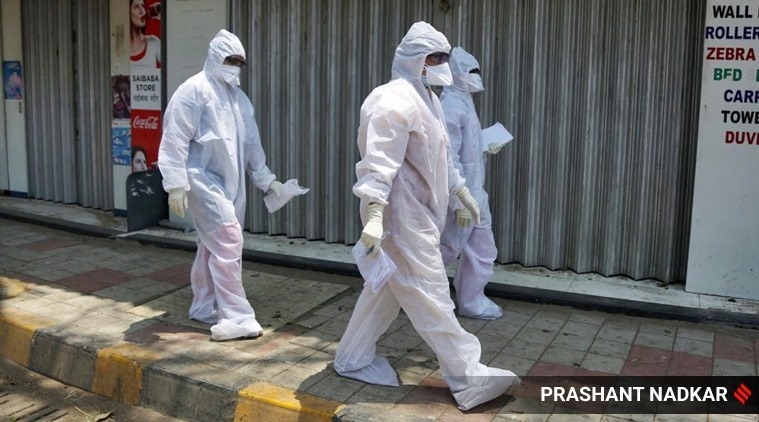 The grocery kits contain 5 kg each of rice and flour, 2 kg of lentils, as well as sugar, tea, salt and spices. (Representational Photo)
The grocery kits contain 5 kg each of rice and flour, 2 kg of lentils, as well as sugar, tea, salt and spices. (Representational Photo)
FOR TWO weeks now, Gulzar Waqar Khan (33) has started a nightly routine of walking around Dharavi’s alleyways in the dead of night, long after the forever-crowded streets of Asia’s largest slum have gone silent. He knocks on doors and asks families and groups of migrant workers sharing rooms if they have food supplies stocked up. He returns home, not very well off himself, but grateful for his relative sense of security. The next night, he steps out again, walking ahead of a small tempo carrying about a dozen bags of groceries, each weighing about 14 to 15 kg.
“Without anyone forming queues or crowds, without any announcements, we hand over the supplies and leave quietly,” said Gulzar, a social activist and small denim goods trader and home-owner in Dharavi.
He is the son of late Waqar Khan, one of a handful of well-known activists who helped maintain the peace among Dharavi’s multi-religious population following the 1992-1993 Mumbai riots. Since his father’s death several years ago, Gulzar has tried to keep his memory alive through the Ham Sab Ek Hain Foundation, whose iconic photograph of little children in costumes depicting various religions is plastered on hundreds of doors in the shanty colony.
Gulzar is working alongside Praja Foundation and the Mumbai Police to distribute supplies inside the major COVID-19 hotspot. The 2.4-sq km sprawl of semi-pucca and pucca hovels, where nearly 90 per cent of the 8.5 lakh population uses public toilets, has recorded 665 positive cases, including 20 deaths as of Tuesday evening.
“Praja Foundation’s supplies are stocked in the basement of a school nearby. Once I have drawn a list of those who need help immediately, I call the coordinators and a tempo is arranged,” he said. The local police station works in tandem, and while supplies were being distributed along with other organisations’ donated material during the daytime, Khan’s idea of nightly rounds to avoid crowding has been supported by the police too.
“In today’s circumstances, if you stand at a street corner in Dharavi and start distributing food and grocery supplies, only few will skip the opportunity to accept a freebie, because, in fact, every single family here is struggling. I wanted to make sure that the neediest get help, those who are in urgent need of assistance because they have completely run out of money and supplies. So I go around at night and make a list, prioritising those who have used up their last provisions. Some tell me tomorrow’s meal is Allah bharose, in the hands of god. I make sure they get a grocery kit immediately,” says Khan.
The grocery kits contain 5 kg each of rice and flour, 2 kg of lentils, as well as sugar, tea, salt and spices.
Among the beneficiaries is Roohi Begum Sheikh, whose husband is an auto-rickshaw driver.
“We have had no income since the lockdown started, so this was timely help,” she said